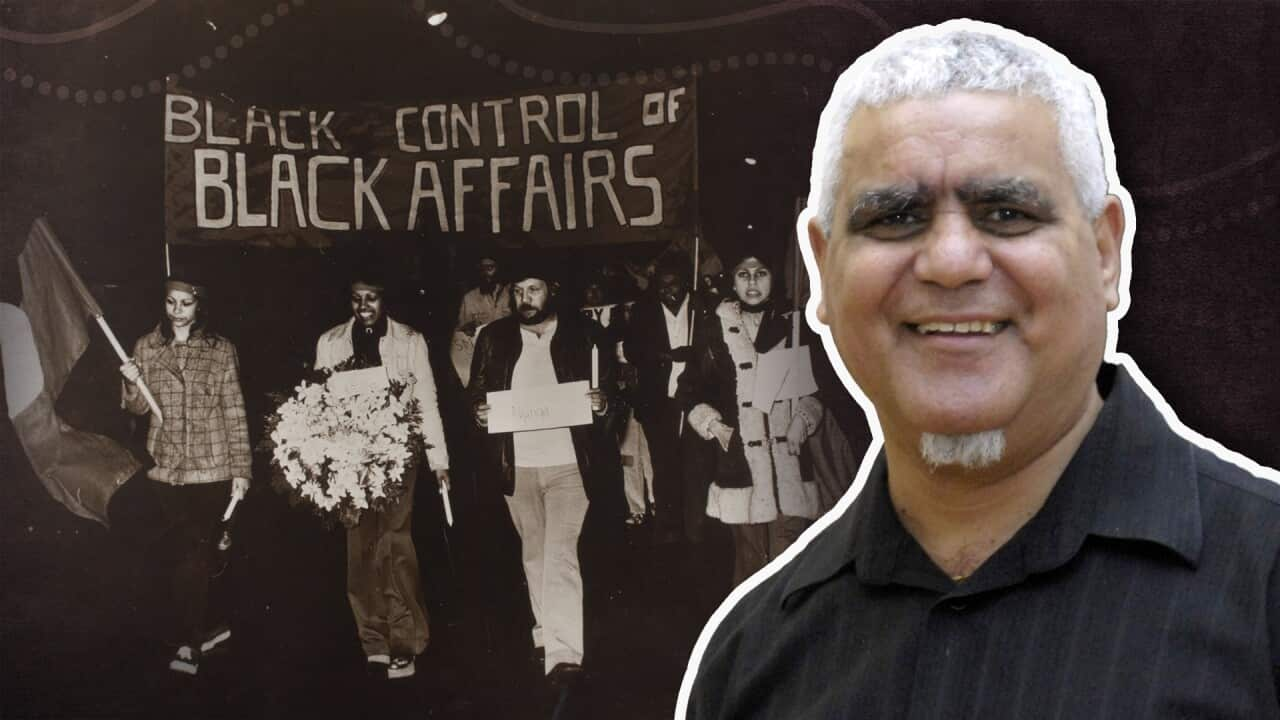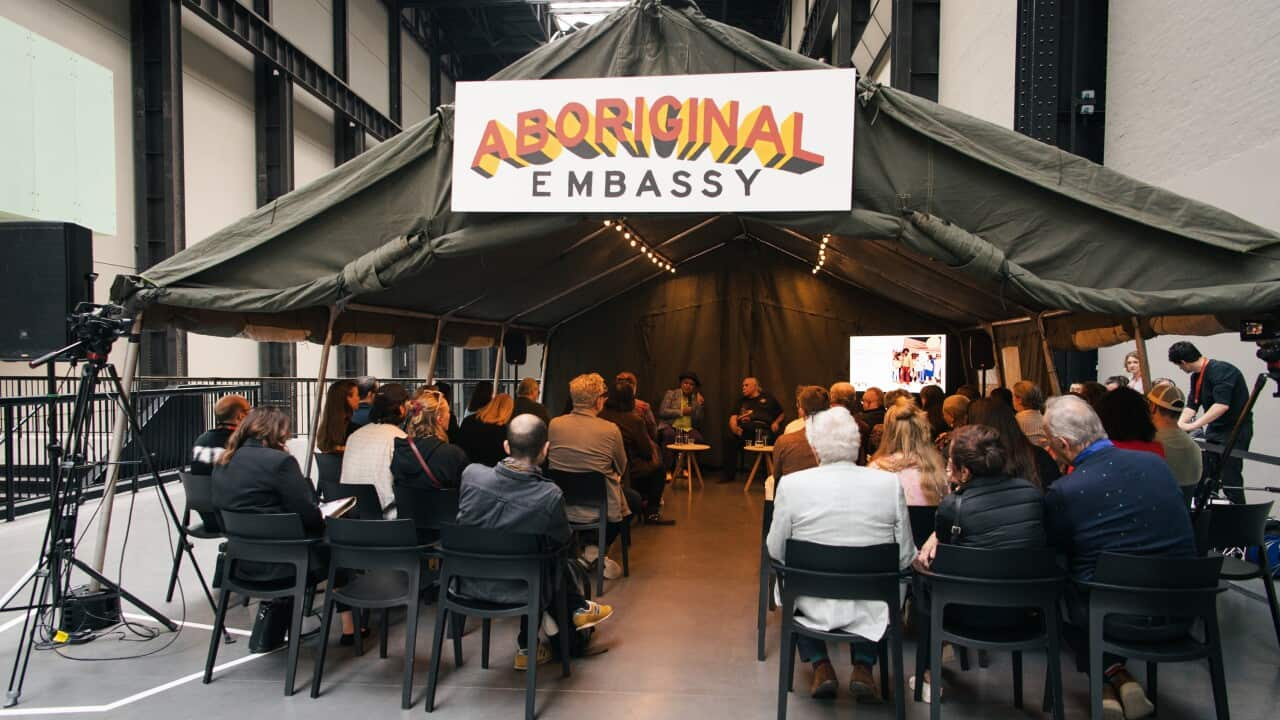From central Queensland to Redfern and the world, Richard Bell's work is known around the globe and now, his story is being told.
A political activist and award-winning artist, Bell was at the forefront of the campaign for Aboriginal self-determination in Redfern during the 1970s, and has pursued the same fight in his creative life.
His story, and the story of the movement that inspires him, is now told in a compelling and powerful documentary, You Can Go Now.
The film is directed by Professor Larissa Behrendt and features familiar faces including Wiradjuri woman, Minister for Indigenous Australians, Linda Burney, Kamilaroi and Ngemba man, community leader and political activist Bob Weatherall, Wiradjuri woman and Redfern community leader Bronwyn Penrith.

Richard Bell: Aboriginal Embassy Tent Talks, Tate Modern, 20/05/2023 & 21/05/2023 Credit: Jordan Anderson/ © Tate, Jordan Anderson 2023
The impact of Redfern
Recalling his early life, Bell said he grew up "pretty similar to most blackfullas of the time".
"We're just coming out of the 1960s, and that was really quite challenging for us. When I was born we weren't allowed to live in towns . . . I was born in 1953," he said.
"It was pretty tough, I went to seven different schools, that made life a little bit hard. I never found it hard at the time."
In late 1974, Bell found himself in Redfern.
"It was amazing, just to be in that community at the time. There were so many blackfullas, I'd just grown up in the little country towns where blackfullas were outnumbered," he said.
"Lots of people talking about the conditions we were living in, what we had grown up in and they wanted to do something about it. I was interested in these discussions and the actions they were taking."
It was the spirit of Redfern that pushed Bell to activism, he campaigned for Land Rights and got a job at the Aboriginal Legal Service.
"Paul Coe sent a message around to the community. I lived around the corner, about 250m from where the legal service office was. I went down and had a talk with Paul and other legendary figures," he said.
"When someone said there was a protest, we'd just turn up!"
At 33, Bell became an artist.
"I came to art very late in my life . . . I had no idea what it was like and what opportunities presented themselves for blackfullas to advocate for our rights [in art]," he said.
"What I was told early on was that I could say and do more in art and not get arrested so that was pretty attractive to me."

Richard is now passing on his artistic knowledge to the next generation. Perhaps even more importantly he's teaching them the value of solidarity. Credit: jarod woods
The telling of his story within the movement
When it comes to You Can Go Now, Bell wanted the movement to be the focus. In his efforts to help create film, Bell earned an executive producer credit.
"I'm interested in filmmaking like a lot of other blackfullas, I see it as a great way of telling stories . . . I got an executive producer credit, so that'll help in future projects," he laughed.
"It frames me and my career beside the movement, which is how I wanted the film to go . . . Larissa did a fantastic job of putting together the story."
Not a 'great believer' in hope
The film comes at a defining time in Australia's history, in the run to the Voice to Parliament referendum.
Bell has been public about his decision to vote against the Voice. He said that he'd like to be more hopefully there will be great progress, but he's "not a great believer in hope".
"I think we are in for quite a lengthy struggle," he said.
"The ruling classes don't care about ordinary people, they don't care about anybody but themselves, the selfishness will be pretty difficult to overcome.
"This whole process has been really traumatic for a lot of blackfullas. It's not been the best thing for us. I can't wait for it to be finished and over and done with it."





